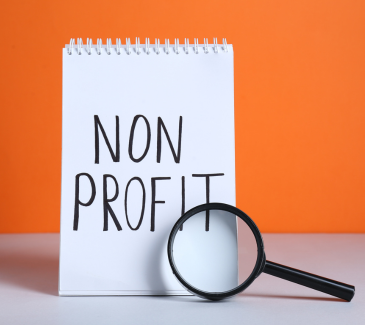Sustaining and growing your business is paramount. As a result, firms and organizations seek your services, often resulting in meeting a potential client for the first time.
How much do you know about this potential new client? Have they received funding elsewhere? If so, what is the source of funding? Fundraising, grant awards, shadow investor, crowdfunding, or venture capital. How much do the leaders of your hopeful client know about grant funding?
It comes down to what I refer to as the three E’s: educating, embracing ethics, and enterprise. We adhere to our Code of Ethics. Always!
There are those times when educating our client is necessary. The Code of Ethics serves the funder, the organization, and grant consultant writer. It is vital that our new client understands our code of ethics. And our writing endeavors are an enterprise. So, our client needs to know what we do and how we do it with an understanding that we can enter into a mutually beneficial operating agreement.
As grant proposal writers, organizational leaders, and business entrepreneurs, we all should appreciate and understand that gaining knowledge in philosophy is pivotal to our success. Why? A philosophy knowledge clarifies ethics, applies logic and critical thinking, articulates objective arguments, and absorbs and evaluates new data.
Years ago, I read An Arabian Proverb. This sententious saying often serves as my guide when interacting with individuals.
He who knows not and knows not that he knows not,
He is a fool—shun him.
He who knows not and knows he knows not,
He is simple—teach him.
He who knows and knows not that he knows,
He is asleep—wake him.
He who knows and knows he knows,
He is wise—follow him.Arabian Proverb
One has contacted you about your grant proposal writing services. The person has never applied for a grant before. The good news is that the organization leader is humble; they give you respect and their undivided attention. The individual is simple; teach him.
The GPA Code of Ethics is familiar to most of us, but reiteration often is good. The frequently asked questions in the Code of Ethics state, “The agency/organization is paying the grant professional to write the proposal for a project or need that the organization has identified. The funder is awarding dollars for the project/need not the skills of the grant professional.”
When, as a grant professional, one asks if you will accept a fee based upon the percentage of the grant award, the answer is no. The GPA posted its Code of Ethics a few years ago:
“Anyone taking a fee based on the percentage of the grant award puts their own needs above that of the donor/funder and the organization. Pay based on percentage puts the donor’s philanthropic interests and intent second. The donor/funder is awarding dollars based on several variables — community need, the efficacy of the project, and the organization’s capacity to implement, deliver, monitor, and sustain the project.”
One’s employer or client must understand the ethics you subscribe to, and there is no deviation from your code of ethics. Working with a client is a collaborative effort. When it is agreed upon that the grant proposal is ready for submission, and you hit go, it is no longer in anyone’s control.
Always remember that the grant proposal writer can only present the client’s data to the funder.
The effort you craft for your client is valuable data. Save it. Use the stored data to prepare other proposals, annual reports, and promotional materials for the organization. Depending on the organization and its leadership, gathering the necessary information and statistics for a grant proposal becomes an epiphanic experience. As a result, the organization has built a solid project plan, gained a better understanding of its strengths and capabilities, weaknesses and need for improvement, and budget, and even gained greater clarity on its mission.
It is wise; meeting with the organization leaders when hearing the results of the grant submission, won, or lost. Emphasize with the leaders that the grant proposal endeavor was a team endeavor. Share and discuss the reviewer scores. The funder’s review will help the team to see where they succeeded or missed the mark. Likewise, if the grantor did not fund, the organization can see where they did not “cut the mustard.” Once again, the review further emphasizes that the effort was a team approach, not “the grant writer didn’t get us the money.”
Thus far, I discussed entering a working relationship with a client because they need education on the grant process; He is simple — teach him. You will come across those individuals that sit quietly, absorbing all your information. You see that they are amicable. You ask the team member a question, and they come forth with profound and prudent knowledge. They knew much about grants but lacked confidence and needed reassurance. That person was asleep — wake him.
You spend your time with a potential new client. You did your pre-meeting to gather as much as possible from the organization so that you can help them find the best grant for the mission of the organization. However, some leaders meet with a condescending tone.
It is unfortunate, but there are those times when you sense storm clouds brewing. When explaining that a grant award has deliverables, that reporting is required on what actions the organization has taken, where the money is spent, what measure of progress did the organization accomplish? The principal leader rebuffs stating that they intend to use the grant award as they see fit. We do not need to report to anyone once we receive our money. Now you know the storm clouds are rolling in.
The organization’s king pin then informs you that he has read the agreement you sent him. He does not like it at all! He states unequivocally that his organization will only pay for the proposal writing services if they are awarded the grant, and to make it even worse, — the fee gets paid from the grant (after all it is the organization’s money now).
When an individual does not listen, refuses to learn, and understand, and has an intolerable arrogance, he is a fool — shun him. It would be best to let go of the charlatans and rogues that take up precious time and do not want to value what you offer. Grant writing is fun and rewarding, with great clients.
Finally, you are a grant professional; you know grants, you stay on top of your profession, and you know that you know; you are wise — they should follow you.











































































